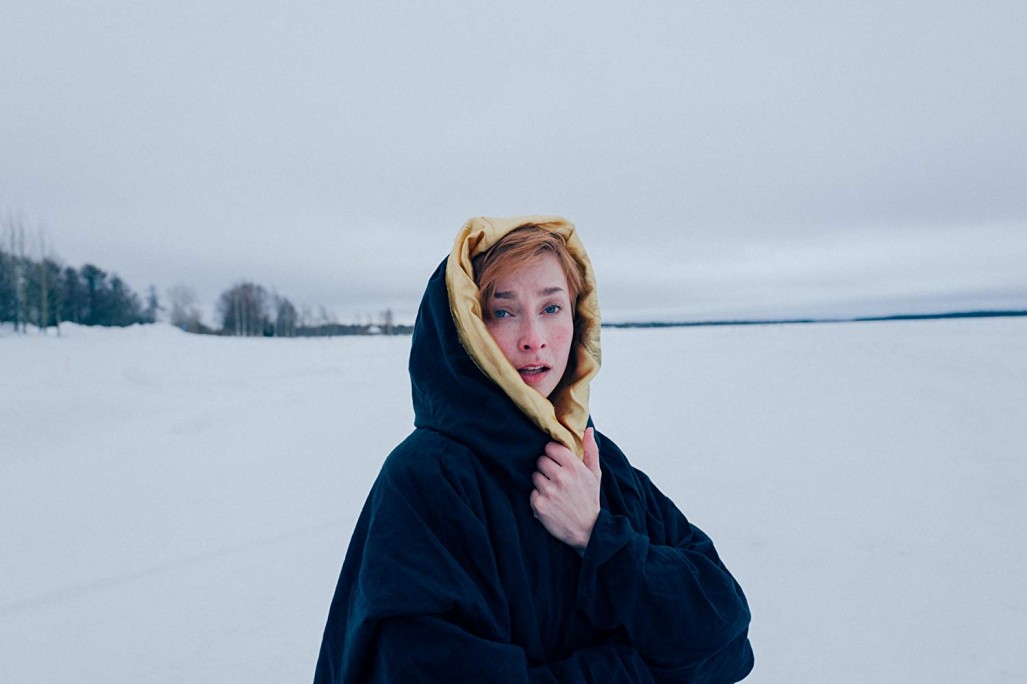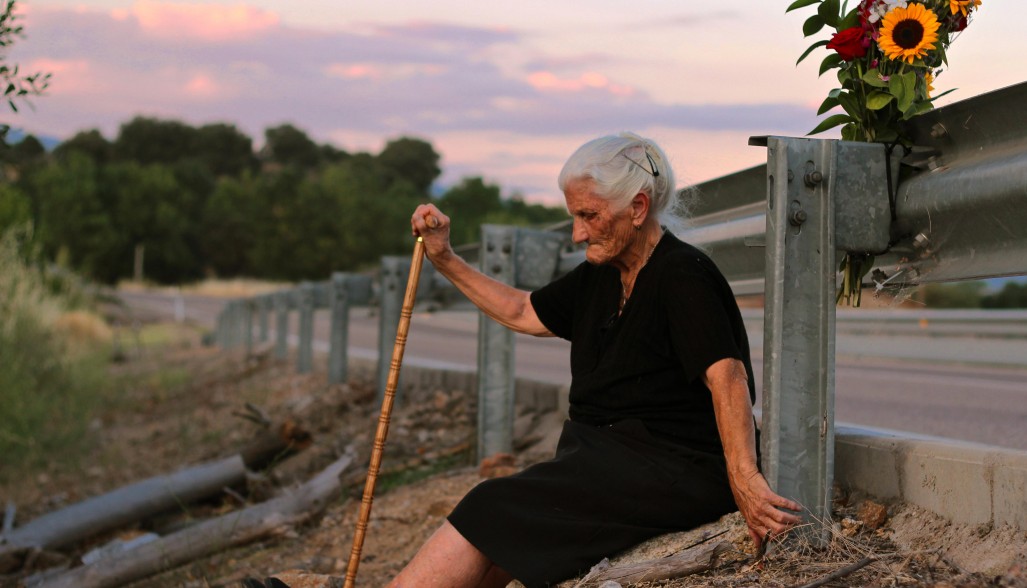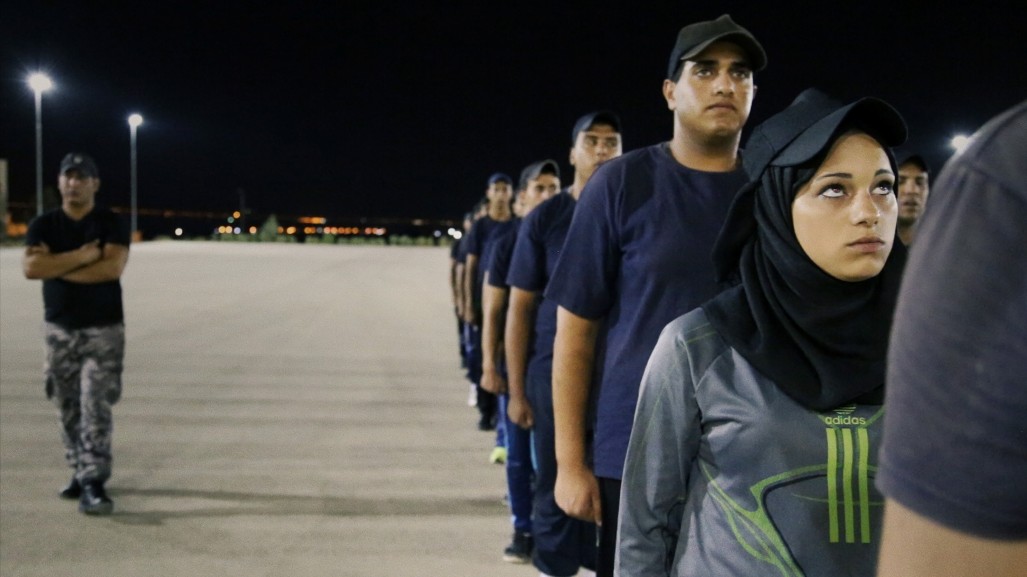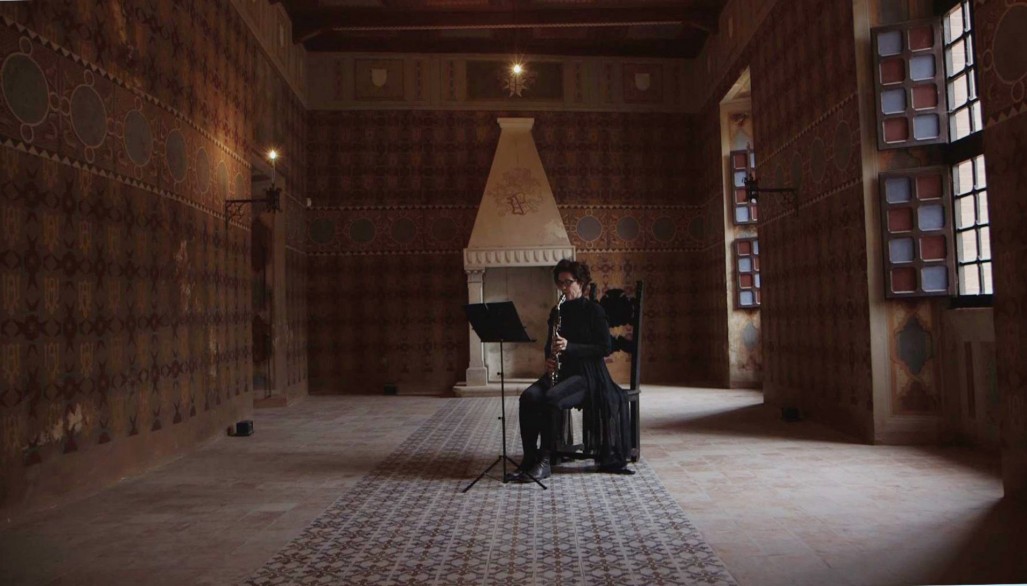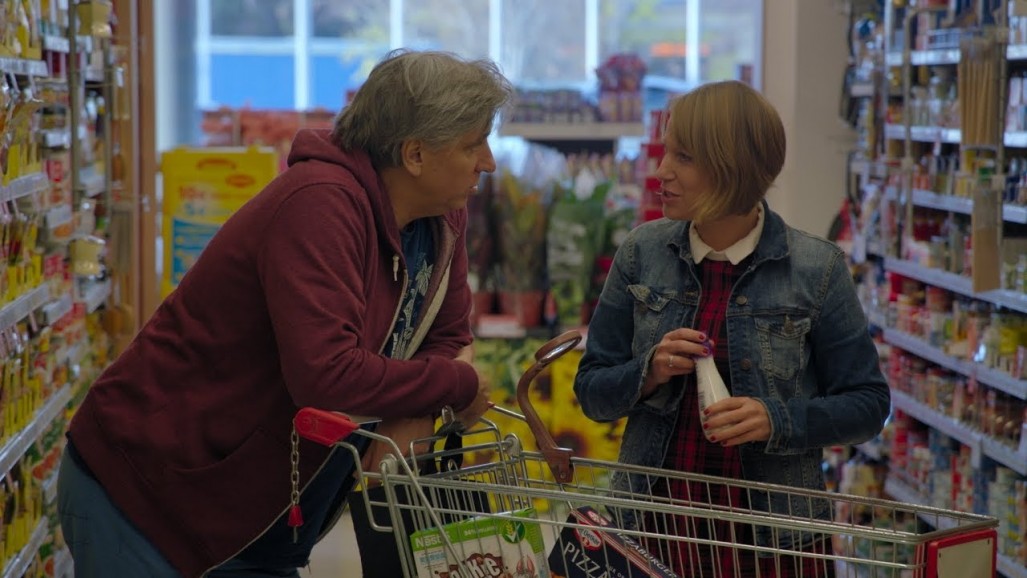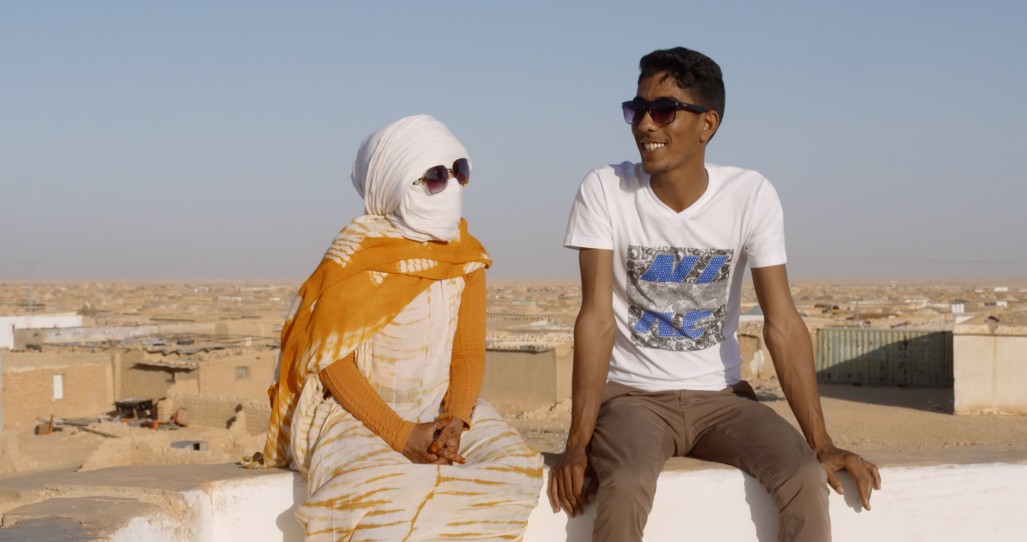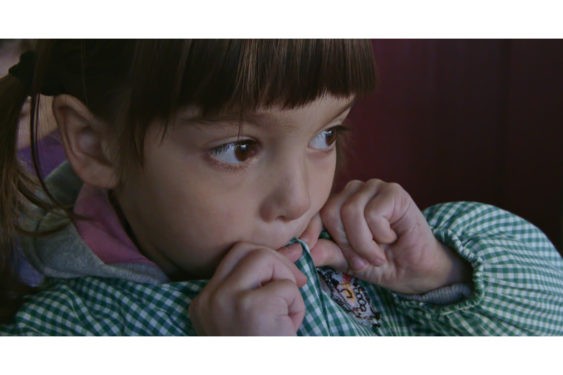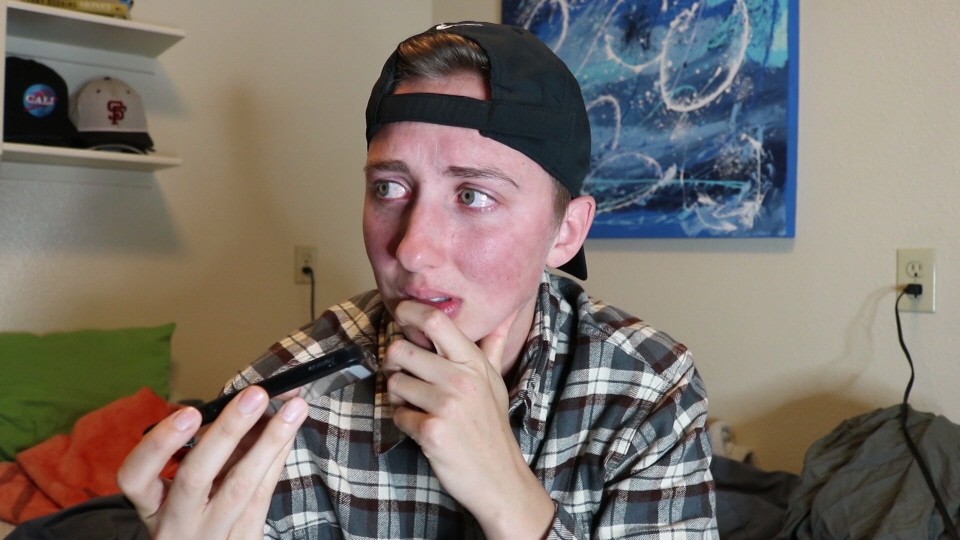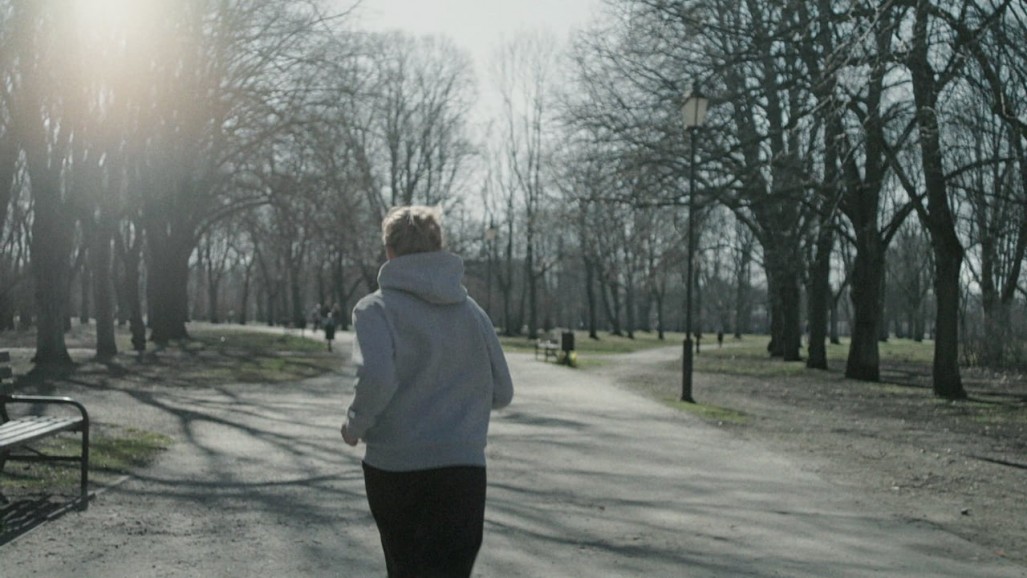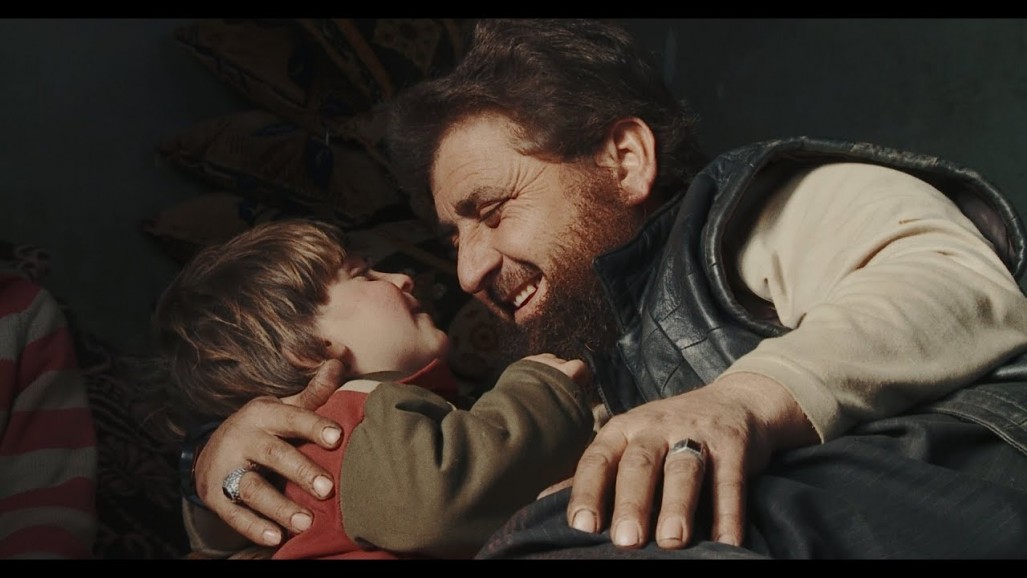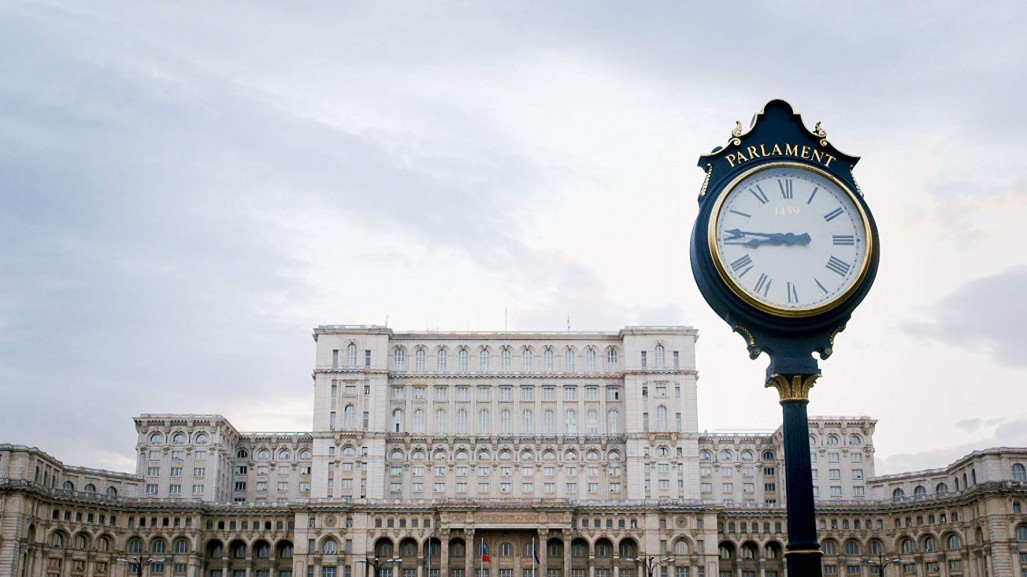Through 11 consecutive editions now, Sofia Film Festival has been screening a documentary selection of 12 films that define new trends in the development of contemporary documentary cinema worldwide. This year, two of these are Bulgarian: The Magic Life of V (Finland/Denmark/Bulgaria, 2019) by Tonislav Christov, premiered at the Sundance Film Festival and competing in the Generation 14 Plus section of the Berlinale 2019, and Palace for the People (Bulgaria/Germany/Romania, 2018) by creative tandem Boris Misirkov and Georgy Bogdanov – which had its world premiere in Leipzig, and has been selected to participate in more than 15 festivals around the world. The 23rd Sofia Film Festival will include this film's premiere screening in Bulgaria.
One of the most awarded documentaries, The Silence of Others, (Spain/USA/Canada/France, 2018) by Robert Bahar and Almudena Carracedo, reveals the epic struggle of the victims of General Francisco Franko's dictatorship in Spain that lasted 40 years, who continue to seek justice to this day. Shot in the course of six years, the film follows victims and survivors who organize an “Argentine lawsuit”, intended to expose the numerous crimes committed by the regime: abducted children and relatives murdered and buried God-knows where, persecuted people, victims of torture... The Silence of Others is very much like a film saluting the small victories of determined individuals, “unfolding with all the force of a classic political thriller by Costa-Gavras or Francesco Rosi...“ writes Screen Daily about this documentary work produced by Pedro and Augustine Almodovar, and Esther Garcia.
The winner of the special award of the jury at the Toronto Hot Docs'18 festival, What Walaa Wants, (Canada/Denmark, 2018) by Canadian director Christi Garland is a memorable personal portrait of a 15-year-old girl, who grew up in the Balata refugee camp, while her mother was imprisoned in Israel. Her dream being to work for the Palestinian national security forces, and despite all the challenges along the way, Walaa doggedly pursues her goals and ambitions.
In his The First Motion of the Immovable, (France/Italy, 2018), winner of the best documentary debut award in Amsterdam “18, Sebastiano d'Ayala Valva relateds the story of the music and the world of Giacinto Scelsi. This director was only 10 when his father played some of his cousin's records. At that age Sebastiano was not able to fathom the meaning of what he heard. Nowadays, however, he considers Giacinto Scelsi's music extraordinary. The composer, who passed in 1988, having spent his life in seclusion, insisted that this music was sent to him by the gods. His compositions come back to life through the memories of various singers and musicians, as well as through visualizations, where nature plays a significant part.
The Green Lie, (Die Grüne Lüge, Austria, 2018) by Austrian director Werner Boote and ecology expert Kathrin Hartmann, co-writer of the script, is a bold documentary narrative about the discoveries concerning the so called “green products”, which, it turns out, have nothing to do with any real sustainability of the industry. Instead, these just fog people's judgment, destruct the environment and compromise the steps that should really be undertaken. This film's creators trace the corporate “green lies” to the locations of the most catastrophic ecologic disasters, such as the biggest oil spill in the US history, rsulting from an explosion aboard the Deepwater Horizon drilling rig, the wildfires in the tropical rainforests of Indonesia, caused by palm-oil producing corporations etc. Werner Boote and Katrin Hartmann discuss the interrelations between ecology and economy and the erroneous policies that pass the responsibility for a just and sustainable management of the resources on to the consumers, with renown experts such as American philosopher, linguist and political activist Prof. Noam Chomsky and journalist, writer and human rights activist Raj Patel.
Hamada, (Sweden/Germany/Norway, 2018) by Eloy Dominguez Seren is an unusual portrait of three, Sadihmed, Zaara and Tacher, of the Sahrawi people who live in a refugee camp in the Sahara desert. They pass their time repairing cars, despite the fact that they have nowhere to drive them. They struggle for political changes and dream about a future that most probably will never materialize.
Shown successfully at various authoritative documentary film forums around the globe, América (USA, 2018) by directors Eric Stoll and Chase Whiteside is the story of three brothers, trapped in the abyss between adolescent dreams and the reality of the adults. The camera follows the lives of three Mexicans, Diego, Rodrigo and Bruno in the course of three years. Their grandma, América, can no longer live on her own and the three brothers are doing their best to provide the best possible care for her, to their abilities. In spite the fact that the family conflict – the result of the difficult logistics in the world of the working people – is brought to the fore, the directors have successfully caught the humor beneath the surface of the mundane, reaching to the complexity and depth of family relations…
Thirty Souls (Trinta lumes, Spain, 2018), directed by Diana Toucedo, was screened successfully within the Panorama section f the Berlinale, 2018. This is a magical portrait of village life in a remote corner of the Iberian peninsula shown through the eyes of two teenagers. Alba and Samuel explore abandoned houses and seek lost people – some are dead, other have migrated abroad. The two are fascinated by the unknown and mysterious haunting the backwater province… This film masterfully brings reality and fiction together, combines plots from the real and imaginary worlds in a really moving narrative.
Out (France, 2018) by director Dennis Parrot, is a touching documentary showing the confessions of various people of their different sexuality. In their moments of truth, young people of gay, bi or transsexual orientation talk about themselves, their stories being presented through emotional videos. Yet, what follows ofter this coming out?Would these young people be able to live with the unavoidable change in their personal and social lives?
The Polish film Diagnosis (Poland, 2018) by Eva Podgorska is a journey in the subconsciousness of a town and its denizens. Through carefully selected questions in a series of therapeutic seances, people have been directed towards the depths of their own emotions, provoked by the town as a starting point. In the course of time, the conversations become more and more intimate. Real-life situations, feelings and memories interweave with subjectively perceived scenes from the town – these mix together, complement each other and interact in a peculiar common fate.
Oscar nominated for best documentary, Talal Derki's Of Fathers and Sons (2018) is a co-production of Germany, Syria, Libia and Quatar. The movie is about Derki's return as a journalist to his fatherland, northern Syria, where he is granted an unprecedented access to the family of Abu Osama, a member of the jihadist Al Nusra front, which is fighting Syria's government forces. Osama can't wait to see his sons grown up so that he could send them to the front to fight for the “true faith”. Unique shots show this family's everyday life, where Abu feels happy as his prayers have been “heard” – one of his sons was born on September 11, and he indoctrinates his children in an ideology that covets the death of all “infidels”.
Presented as a project within the 15th edition of the Sofia Meetings 2018, The Magic Life of V is a co-production between Finland (Making Movies, Kaarle Aho), Denmark (Kirstine Barfod Film) and Bulgaria (Soul Food, Andrea Stanoeva/Tpnislav Christov), supported by the National Film Center agency. The film was first screened within the documentary contest of the most important festival for independent cinema, Sundance and was selected in the Generation 14 plus section of the 69th Berlinale, 2019. It takes us to meet Vera, who is haunted by her childhood's traumas and tries to gain independence playing various roles in life. In due time it becomes apparent that Vera keeps trying to overcome psychological traumas inflicted by her aggressive father, who is also an alcoholic.
Palace for the People was created by Boris Misirkov and Georgy Bogdanov. This co-production between Bulgaria, Germany and Romania was filmed in five countries of the former Eastern Bloc in Europe, as a specific attempt to “part” with communism through a big-time epos about the most representative buildings of this political system: Ceausescu's palace in Romania, the Building of the Moscow State University, the National Palace of Culture, in Sofia, The Federation palace, in Belgrade, and the now non-existent Palace of the Republic, in Berlin. Palace for the People is an attempt to philosophically rethink the heritage and reality we have been living with over the last 30 years, since 1989…
WE ARE WAITING FOR YOU AT #КИНО!
#23SofiaIFF
One of the most awarded documentaries, The Silence of Others, (Spain/USA/Canada/France, 2018) by Robert Bahar and Almudena Carracedo, reveals the epic struggle of the victims of General Francisco Franko's dictatorship in Spain that lasted 40 years, who continue to seek justice to this day. Shot in the course of six years, the film follows victims and survivors who organize an “Argentine lawsuit”, intended to expose the numerous crimes committed by the regime: abducted children and relatives murdered and buried God-knows where, persecuted people, victims of torture... The Silence of Others is very much like a film saluting the small victories of determined individuals, “unfolding with all the force of a classic political thriller by Costa-Gavras or Francesco Rosi...“ writes Screen Daily about this documentary work produced by Pedro and Augustine Almodovar, and Esther Garcia.
The winner of the special award of the jury at the Toronto Hot Docs'18 festival, What Walaa Wants, (Canada/Denmark, 2018) by Canadian director Christi Garland is a memorable personal portrait of a 15-year-old girl, who grew up in the Balata refugee camp, while her mother was imprisoned in Israel. Her dream being to work for the Palestinian national security forces, and despite all the challenges along the way, Walaa doggedly pursues her goals and ambitions.
In his The First Motion of the Immovable, (France/Italy, 2018), winner of the best documentary debut award in Amsterdam “18, Sebastiano d'Ayala Valva relateds the story of the music and the world of Giacinto Scelsi. This director was only 10 when his father played some of his cousin's records. At that age Sebastiano was not able to fathom the meaning of what he heard. Nowadays, however, he considers Giacinto Scelsi's music extraordinary. The composer, who passed in 1988, having spent his life in seclusion, insisted that this music was sent to him by the gods. His compositions come back to life through the memories of various singers and musicians, as well as through visualizations, where nature plays a significant part.
The Green Lie, (Die Grüne Lüge, Austria, 2018) by Austrian director Werner Boote and ecology expert Kathrin Hartmann, co-writer of the script, is a bold documentary narrative about the discoveries concerning the so called “green products”, which, it turns out, have nothing to do with any real sustainability of the industry. Instead, these just fog people's judgment, destruct the environment and compromise the steps that should really be undertaken. This film's creators trace the corporate “green lies” to the locations of the most catastrophic ecologic disasters, such as the biggest oil spill in the US history, rsulting from an explosion aboard the Deepwater Horizon drilling rig, the wildfires in the tropical rainforests of Indonesia, caused by palm-oil producing corporations etc. Werner Boote and Katrin Hartmann discuss the interrelations between ecology and economy and the erroneous policies that pass the responsibility for a just and sustainable management of the resources on to the consumers, with renown experts such as American philosopher, linguist and political activist Prof. Noam Chomsky and journalist, writer and human rights activist Raj Patel.
Hamada, (Sweden/Germany/Norway, 2018) by Eloy Dominguez Seren is an unusual portrait of three, Sadihmed, Zaara and Tacher, of the Sahrawi people who live in a refugee camp in the Sahara desert. They pass their time repairing cars, despite the fact that they have nowhere to drive them. They struggle for political changes and dream about a future that most probably will never materialize.
Shown successfully at various authoritative documentary film forums around the globe, América (USA, 2018) by directors Eric Stoll and Chase Whiteside is the story of three brothers, trapped in the abyss between adolescent dreams and the reality of the adults. The camera follows the lives of three Mexicans, Diego, Rodrigo and Bruno in the course of three years. Their grandma, América, can no longer live on her own and the three brothers are doing their best to provide the best possible care for her, to their abilities. In spite the fact that the family conflict – the result of the difficult logistics in the world of the working people – is brought to the fore, the directors have successfully caught the humor beneath the surface of the mundane, reaching to the complexity and depth of family relations…
Thirty Souls (Trinta lumes, Spain, 2018), directed by Diana Toucedo, was screened successfully within the Panorama section f the Berlinale, 2018. This is a magical portrait of village life in a remote corner of the Iberian peninsula shown through the eyes of two teenagers. Alba and Samuel explore abandoned houses and seek lost people – some are dead, other have migrated abroad. The two are fascinated by the unknown and mysterious haunting the backwater province… This film masterfully brings reality and fiction together, combines plots from the real and imaginary worlds in a really moving narrative.
Out (France, 2018) by director Dennis Parrot, is a touching documentary showing the confessions of various people of their different sexuality. In their moments of truth, young people of gay, bi or transsexual orientation talk about themselves, their stories being presented through emotional videos. Yet, what follows ofter this coming out?Would these young people be able to live with the unavoidable change in their personal and social lives?
The Polish film Diagnosis (Poland, 2018) by Eva Podgorska is a journey in the subconsciousness of a town and its denizens. Through carefully selected questions in a series of therapeutic seances, people have been directed towards the depths of their own emotions, provoked by the town as a starting point. In the course of time, the conversations become more and more intimate. Real-life situations, feelings and memories interweave with subjectively perceived scenes from the town – these mix together, complement each other and interact in a peculiar common fate.
Oscar nominated for best documentary, Talal Derki's Of Fathers and Sons (2018) is a co-production of Germany, Syria, Libia and Quatar. The movie is about Derki's return as a journalist to his fatherland, northern Syria, where he is granted an unprecedented access to the family of Abu Osama, a member of the jihadist Al Nusra front, which is fighting Syria's government forces. Osama can't wait to see his sons grown up so that he could send them to the front to fight for the “true faith”. Unique shots show this family's everyday life, where Abu feels happy as his prayers have been “heard” – one of his sons was born on September 11, and he indoctrinates his children in an ideology that covets the death of all “infidels”.
Presented as a project within the 15th edition of the Sofia Meetings 2018, The Magic Life of V is a co-production between Finland (Making Movies, Kaarle Aho), Denmark (Kirstine Barfod Film) and Bulgaria (Soul Food, Andrea Stanoeva/Tpnislav Christov), supported by the National Film Center agency. The film was first screened within the documentary contest of the most important festival for independent cinema, Sundance and was selected in the Generation 14 plus section of the 69th Berlinale, 2019. It takes us to meet Vera, who is haunted by her childhood's traumas and tries to gain independence playing various roles in life. In due time it becomes apparent that Vera keeps trying to overcome psychological traumas inflicted by her aggressive father, who is also an alcoholic.
Palace for the People was created by Boris Misirkov and Georgy Bogdanov. This co-production between Bulgaria, Germany and Romania was filmed in five countries of the former Eastern Bloc in Europe, as a specific attempt to “part” with communism through a big-time epos about the most representative buildings of this political system: Ceausescu's palace in Romania, the Building of the Moscow State University, the National Palace of Culture, in Sofia, The Federation palace, in Belgrade, and the now non-existent Palace of the Republic, in Berlin. Palace for the People is an attempt to philosophically rethink the heritage and reality we have been living with over the last 30 years, since 1989…
WE ARE WAITING FOR YOU AT #КИНО!
#23SofiaIFF



